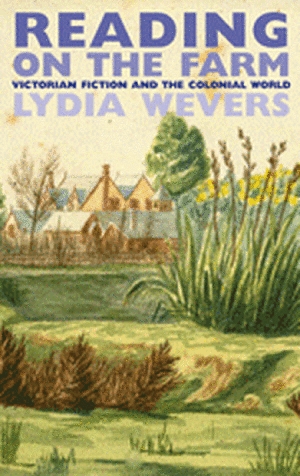Deirdre Coleman
Deirdre Coleman reviews 'Reading on the Farm: Victorian Fiction and the Colonial World' by Lydia Wevers
At the centre of Reading on the Farm stands a large colonial library of just over 2000 volumes. The library belonged to Brancepeth Farm, a sheep station in the Wairarapa Valley of New Zealand, which, at its height in the late 1890s, employed more than three hundred staff. Brancepeth’s library, consisting principally of contemporary Victorian fiction, about half of it written by women, was considered by its users to be one of the best station libraries in its day, certainly superior to the publicly funded library at Masterton, the nearest town. Remarkably, Brancepeth’s library was never dispersed or culled but has survived intact, gifted in 1966 to Victoria University of Wellington by the Beetham family. The literary and artistic Beethams emigrated from England in the 1850s and became some of New Zealand’s greatest ‘sheeplords’ in the late nineteenth century.
... (read more)Deirdre Coleman reviews ‘The Cambridge Companion to British Romantic Poetry’ edited by James Chandler and Maureen N. McLane
The Cambridge Companion series has been a very successful venture, presenting readers with handy, up-to-date collections of specially commissioned essays by leading scholars on a wide range of authors and topics. This co-edited volume on British Romantic poetry encompasses many of the key topics in Romantic literary studies of the last two decades: historicism, canonisation, antiquarianism, Gothicism, the lyric, the rise of standardised English, women’s writing, colonialism, poetry’s relationship with the novel and with philosophy, and the legacy of Romanticism in contemporary poetry. There are also several essays which, in their originality and complex argumentation, cannot be so easily summed up and labelled: a brilliant reading by James Chandler of Wordsworth’s ‘Intimations of Immortality’ Ode as an important continuation of the eighteenth century’s ‘progress of poetry’ theme; an analysis of Romantic-era poetry which argues that the study of Romantic poetry belongs as much to media history as to literary scholarship; and an essay by Kevis Goodman which, by tracking the discursive migration of nostalgia from medical discourse into the heart of Romantic aesthetics, challenges the usual clichés of this period’s poetry as a de-historicising ‘exile from the present’, a poetry of return and retreat.
... (read more)

